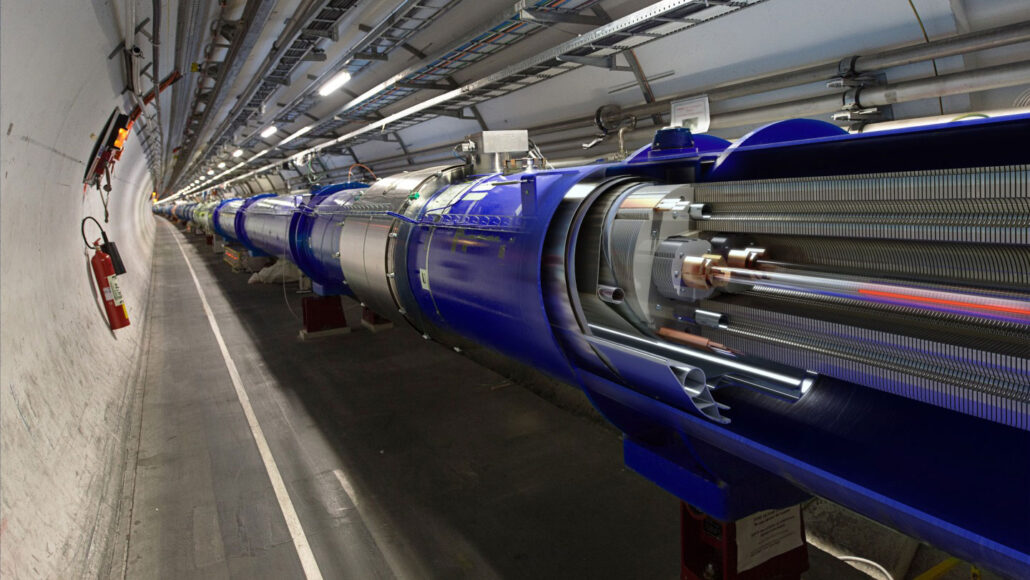atom: The basic unit of a chemical element. Atoms are made up of a dense nucleus that contains positively charged protons and uncharged neutrons. The nucleus is orbited by a cloud of negatively charged electrons.
cloud: A plume of molecules or particles, such as water droplets, that move under the action of an outside force, such as wind, radiation or water currents.
electric charge: The physical property responsible for electric force; it can be negative or positive.
electron: A negatively charged particle, usually found orbiting the outer regions of an atom; also, the carrier of electricity within solids.
element: A building block of some larger structure. (in chemistry) Each of more than one hundred substances for which the smallest unit of each is a single atom. Examples include hydrogen, oxygen, carbon, lithium and uranium.
fundamental: Something that is basic or serves as the foundation for another thing or idea.
hadron: One of a group of particles that are made up of other, smaller particles — quarks — held together by a particular kind of force. The protons and neutrons found in the nucleus of atoms are hadrons.
ion: (adj. ionized) An atom or molecule with an electric charge due to the loss or gain of one or more electrons. An ionized gas, or plasma, is where all of the electrons have been separated from their parent atoms.
isotopes: Different forms of an element that vary somewhat in mass (and potentially in lifetime). All have the same number of protons in their nucleus, but different numbers of neutrons.
matter: Something that occupies space and has mass. Anything on Earth with matter will have a property described as "weight."
neutron: A subatomic particle carrying no electric charge that is one of the basic pieces of matter. Neutrons belong to the family of particles known as hadrons.
nucleus: Plural is nuclei. (in physics) The central core of an atom, containing most of its mass.
particle: A minute amount of something.
proton: A subatomic particle that is one of the basic building blocks of the atoms that make up matter. Protons belong to the family of particles known as hadrons.
quarks: A family of subatomic particles that each carries a fractional electric charge. Quarks are building blocks of particles called hadrons. Quarks come in types, or “flavors,” known as: up, down, strange, charm, top and bottom.








